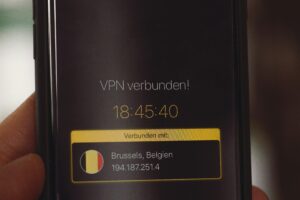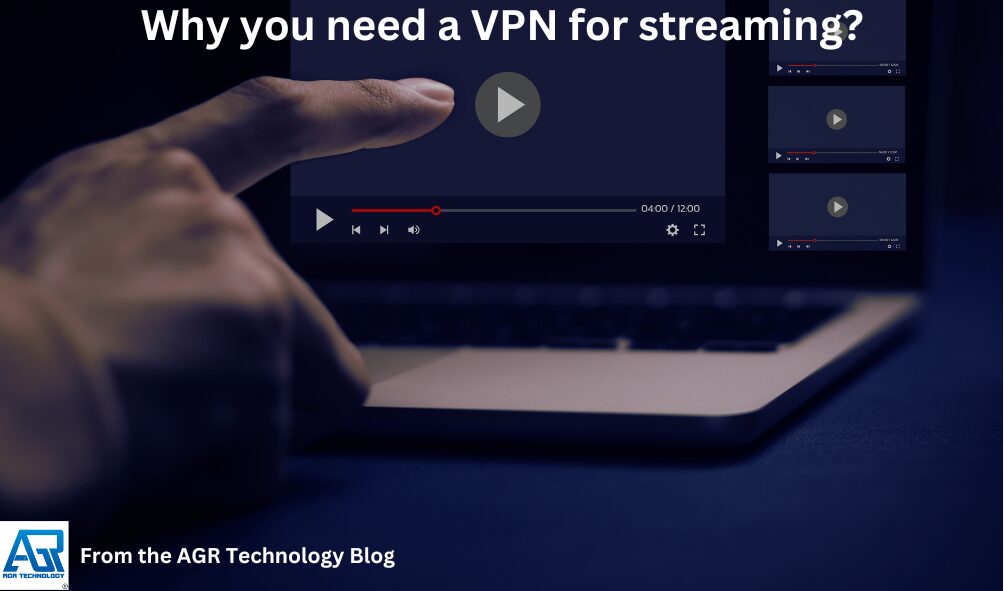Why You Need a VPN for Streaming: Access More Content & Stream Faster
Streaming video content online has become a daily ritual for millions of people worldwide. However many viewers face frustrating geo-restrictions content blocks and buffering issues that prevent them from accessing their favorite shows movies and live events. That’s where a VPN (Virtual Private Network) becomes an essential tool for streamers.
A VPN doesn’t just protect online privacy – it opens up a world of unlimited streaming possibilities. By masking the user’s real location and connecting through servers in different countries viewers can bypass regional restrictions and access content that’s otherwise unavailable in their area. This technology also helps prevent bandwidth throttling from internet service providers ensuring smoother playback and better streaming quality.
What Is a VPN and How Does It Work
A Virtual Private Network (VPN) creates an encrypted tunnel between a user’s device and the internet, masking their IP address and online activities. The technology routes internet traffic through remote servers located in different geographical locations while protecting data from unauthorized access.
Key Components of VPN Technology
VPN services operate through three essential components:
- VPN Servers: Networks of physical or virtual servers distributed across multiple countries (e.g., VPN Servers for NZ, VPN Servers for Canada, VPN Servers for South Africa, Sweden and Norway)
- VPN Protocols: Security frameworks that establish connections (e.g., OpenVPN, WireGuard, IKEv2)
- Encryption Keys: Digital codes that scramble data during transmission (e.g., 256-bit AES encryption)
The connection process involves:
- Authentication with VPN server
- Creation of encrypted tunnel
- IP address masking
- Data routing through selected server
How VPNs Encrypt Your Data
VPN encryption transforms readable data into encoded information through a multi-step process:
- Initial Handshake: Client-server verification using unique authentication keys
- Data Encapsulation: Original data packets wrapped in encrypted VPN packets
- Tunnel Transport: Secured transmission through encrypted VPN tunnel
- Decryption: Data conversion back to readable format at destination
| Encryption Type | Security Level | Processing Speed |
|---|---|---|
| 256-bit AES | Military-grade | Moderate |
| 128-bit AES | High | Fast |
| ChaCha20 | Very High | Very Fast |
The encryption system implements perfect forward secrecy, generating new encryption keys for each session to maintain data security.
Geographic Restrictions on Streaming Platforms
Streaming platforms implement geographic restrictions through IP address tracking to control content access across different regions. These restrictions stem from licensing agreements copyright laws that vary by country.
Region-Locked Content Explained
Region-locked content refers to digital media that’s only accessible from specific geographic locations. Streaming services use IP address detection to determine a viewer’s location blocking access when:
- The content isn’t licensed for viewing in that region
- Local regulations prohibit certain content distribution
- Rights holders enforce territorial restrictions
- Distribution agreements limit content to specific markets
Popular Services With Geo-Blocking
- Netflix: Offers different content catalogs across countries with up to 40% variation in available titles
- BBC iPlayer: Restricts access to UK viewers only
- Hulu: Limited primarily to US audiences
- Amazon Prime Video: Shows different content based on viewer location
- Disney+: Releases content on different schedules per region
| Streaming Service | Primary Market | Content Variation |
|---|---|---|
| Netflix | Global | 40% difference between regions |
| BBC iPlayer | United Kingdom | 100% region-locked |
| Hulu | United States | 95% US-exclusive |
| Amazon Prime | Global | 30-50% regional variation |
Benefits of Using a VPN for Video Streaming

VPNs enhance the streaming experience through location masking advanced encryption protocols. Here’s how VPNs benefit video streaming users:
Access Global Content Libraries
A VPN unlocks geo-restricted video content by connecting to servers in different countries. When connected to a UK server, users access British streaming libraries even from outside the UK. This capability opens up extensive content catalogs from Netflix UK BBC iPlayer Hulu Amazon Prime Video Disney+ based on the selected server location.
Avoid ISP Throttling
Internet Service Providers throttle streaming speeds by monitoring data usage patterns. VPN encryption prevents ISPs from detecting streaming activity by masking the data transfer type. This encrypted connection maintains consistent streaming speeds without selective bandwidth restrictions applied to video content.
Enhanced Privacy and Security
VPN encryption protects streaming data from external monitoring monitoring attempts. The encrypted tunnel prevents:
- Data interception between the device streaming platform
- Location tracking by advertising networks
- Logging of viewing preferences history
- Unauthorized access to streaming accounts credentials
The security features enable:
- Anonymous streaming activity
- Protected payment information
- Secured account login details
- Encrypted viewing history
These privacy protections work alongside the streaming benefits without impacting video quality or loading speeds when using premium VPN services.
Choosing the Right VPN for Streaming

Selecting an optimal VPN for streaming requires evaluating specific features that impact streaming performance. The right VPN service enhances streaming quality while maintaining security protocols.
Essential Features for Video Streaming
A streaming-optimized VPN includes high-speed servers with unlimited bandwidth capabilities. Essential features include:
- Server Network Size: Large networks of 3000+ servers provide multiple connection options
- Connection Speed: Servers with 100+ Mbps speeds ensure buffer-free streaming
- Bandwidth Allocation: Unlimited data transfer without monthly caps or restrictions
- Server Locations: Strategic server placement in key streaming markets like US UK Japan
- Split Tunneling: Option to route only streaming traffic through VPN while maintaining direct access for other apps
- Kill Switch: Automatic connection termination if VPN drops preventing IP exposure
- Multi-Device Support: Simultaneous connections on 5-10 devices for household streaming
Top VPN Services for Streaming
Potential Drawbacks and Limitations
Using a VPN for streaming comes with specific limitations that impact the viewing experience. Understanding these constraints helps users make informed decisions about VPN usage for streaming purposes.
Impact on Connection Speed
VPN encryption processes add an extra layer between the user’s device and streaming platforms, resulting in a 10-30% reduction in connection speed. Premium VPN services minimize this impact through optimized servers and advanced protocols, maintaining speeds of 100+ Mbps on standard connections. Factors affecting VPN streaming speeds include:
- Distance to VPN server location
- Server load during peak usage hours
- Encryption protocol complexity
- Base internet connection quality
- Device processing power
Legal Considerations
VPN usage for streaming operates in a complex legal framework that varies by jurisdiction. Netflix’s terms of service explicitly mention VPN restrictions, with potential account suspension for repeated circumvention attempts. Key legal aspects include:
- Streaming platform terms of service violations
- Copyright holder distribution rights
- Regional licensing agreements
- Content protection laws
- International data privacy regulations
Key Takeaways
- A VPN is essential for streaming by bypassing geo-restrictions, preventing bandwidth throttling, and protecting user privacy through encrypted connections
- VPNs work through a network of servers, security protocols, and encryption keys, creating a secure tunnel for data transmission while masking your real location
- Major streaming platforms like Netflix, BBC iPlayer, and Hulu implement geo-blocking, offering different content libraries based on viewer location
- Using a VPN for streaming provides benefits like access to global content libraries, protection against ISP throttling, and enhanced security for streaming activities
- When choosing a streaming VPN, look for features like large server networks, high speeds (100+ Mbps), unlimited bandwidth, and dedicated streaming servers
- Be aware of potential limitations including slight speed reductions (10-30%) and legal considerations regarding platform terms of service and regional regulations
Conclusion
A VPN proves to be an essential tool for anyone serious about their streaming experience. It’s not just about accessing geo-restricted content – it’s about ensuring privacy security and optimal streaming performance. While there are some speed trade-offs users can easily overcome these limitations by choosing a high-quality VPN service with streaming-optimized servers.
For viewers who want unrestricted access to their favorite shows and movies a VPN is the key to unlocking a world of entertainment. By understanding the legal landscape and selecting the right provider streamers can enjoy seamless access to content while maintaining their online privacy and security.
Disclaimer: We test and evaluate VPN services in the context of legal recreational use. For example: Accessing a service from another region or country (according to the service’s terms and restrictions). Ensuring your internet security and privacy while overseas. We do not encourage or condone the unlawful or malicious use of VPN services. AGR Technology does not encourage or approve the consumption of illegal materials.
Frequently Asked Questions
What is a VPN and how does it help with streaming?
A VPN (Virtual Private Network) is a security tool that encrypts your internet connection and masks your IP address. For streaming, it helps bypass geo-restrictions, prevents bandwidth throttling from ISPs, and protects your privacy. It works by routing your traffic through servers in different countries, allowing access to region-locked content while maintaining your security.
Can a VPN slow down my streaming speed?
Yes, a VPN can reduce your connection speed by 10-30% due to encryption overhead. However, premium VPN services minimize this impact through optimized servers and protocols. The actual speed loss depends on factors like server location, base internet speed, and server load.
Is it legal to use a VPN for streaming?
Using a VPN is legal in most countries, including the USA and EU. However, using it to access geo-restricted content may violate streaming service terms of service. While not typically enforced, it’s important to understand that some countries like China and Russia have restrictions on VPN usage.
Which streaming services can I access with a VPN?
A quality VPN can help you access major streaming platforms like Netflix, BBC iPlayer, Hulu, Amazon Prime Video, and Disney+. Each service offers different content libraries in various regions, and a VPN allows you to explore these different libraries by connecting to servers in those countries.
What features should I look for in a streaming VPN?
Essential features include a large server network, high connection speeds, unlimited bandwidth, strategic server locations in popular streaming countries, split tunneling capability, a kill switch for security, and support for multiple devices. The VPN should also have a proven track record of accessing major streaming platforms.
Can streaming services detect VPN usage?
Yes, streaming services can detect some VPN connections and may block access. However, premium VPN providers regularly update their servers and IP addresses to avoid detection. They use advanced technologies to make VPN traffic appear as regular traffic, helping maintain reliable access to streaming platforms.
How does a VPN prevent ISP throttling?
A VPN encrypts your internet traffic, making it impossible for your ISP to see what you’re streaming. Without this visibility, they cannot selectively throttle your streaming activities. This encryption ensures consistent speeds and prevents bandwidth restrictions based on your content consumption.
Do I need a VPN on all my streaming devices?
While not mandatory, installing a VPN on all streaming devices provides consistent access to geo-restricted content and privacy protection. Most premium VPNs allow multiple simultaneous connections and offer apps for various platforms including Smart TVs, mobile devices, and streaming devices.
Other related content from our content:
Difference between VPNs and Proxies
VPN Services for the Netherlands
Why do some anti-virus tools detect things whilst others don’t
Quantum cloud compute services
Source(s) cited:
“Regional lockout” Wikipedia, 29 Aug. 2003, en.wikipedia.org/wiki/Regional_lockout. Accessed 12 Feb. 2025.
[Online]. Available at: https://quizizz.com/_media/quizzes/60328dfa-960e-4d01-bf77-344d79d7747f (Accessed: 12 February 2025).

Alessio Rigoli is the founder of AGR Technology and got his start working in the IT space originally in Education and then in the private sector helping businesses in various industries. Alessio maintains the blog and is interested in a number of different topics emerging and current such as Digital marketing, Software development, Cryptocurrency/Blockchain, Cyber security, Linux and more.
Alessio Rigoli, AGR Technology
![logo-new-23[1] logo-new-23[1]](https://agrtech.com.au/wp-content/uploads/elementor/thumbs/logo-new-231-qad2sqbr9f0wlvza81xod18hkirbk9apc0elfhpco4.png)
